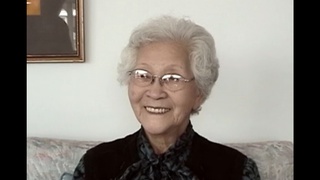Interviews
How he got into politics
I don't think anyone really at an early age says, "I'm gonna be..." well, other than, I guess, kids saying, "I want to be President of the United States." But I don't think anyone really says, "I want to be mayor of San Jose, California." But being -- and I started in community activities within the Japanese American community through our San Jose Japanese Methodist Church and JACL, and then that sort of expanded into activities in the total majority community. And so those kinds of community activities then led me to the possibility of being appointed to the city council.
The first time I... I didn't run for the city council. We had a mayor who was, we had our first directly elected mayor, and that created a vacancy on the city council. So the new mayor and two members of the city council came to me and said, "We've got to fill that vacancy on the city council. Would you consider putting your name in for it?" So I said, "Well, you know, I'm in business with my father and I really should talk to him about this."
So anyway, I talked to my dad and he said, "Well, we can make the arrangements between how you and I conduct the business," but he said, "In Japan there's an old adage about, if you were in politics, you're gonna be like the 'nail sticking out of the board.' And you know what happens to that nail? It always gets hammered. Now the question is, are you gonna be able to take that hammering?"
And so anyway, I thought about it and talked to a lot of friends, and I finally said, "Okay, I'll put my name in." And so I was appointed to the city council for the two-year unexpired term of the mayor who had vacated that post to become the new mayor.
Date: July 4, 2008
Location: Colorado, US
Interviewer: Tom Ikeda
Contributed by: Watase Media Arts Center, Japanese American National Museum








